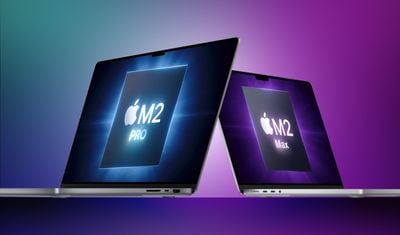Apple's next-generation 14-inch and 16-inch MacBook Pro models with M2 Pro and M2 Max chips will be equipped with "very high-bandwidth, high-speed RAM," according to information shared by MacRumors Forums member Amethyst, who accurately revealed details about the Mac Studio and Studio Display before those products were announced.

The current 14-inch and 16-inch MacBook Pro models are equipped with LPDDR5 RAM from Samsung, with the M1 Pro chip providing up to 200 GB/s of memory bandwidth and the M1 Max chip topping out at 400 GB/s. On a speculative basis, it is possible that the next MacBook Pro models could be equipped with Samsung's latest LPDDR5X RAM for up to 33% increased memory bandwidth with up to 20% less power consumption. This would result in up to 300 GB/s memory bandwidth for the M2 Pro and up to 600 GB/s for the M2 Max.
Bloomberg's Mark Gurman expects the next MacBook Pros to have few other changes beyond the M2 Pro and M2 Max chips. At this point, it seems likely that the laptops will be announced in November at the earliest with press releases on the Apple Newsroom site. Apple has launched new Macs in November multiple times in recent years, including the original 16-inch MacBook Pro in 2019 and the first three Macs with the M1 chip in 2020.
The current 14-inch and 16-inch MacBook Pro models with the M1 Pro and M1 Max chips were released in October 2021 and featured a complete redesign with a notch in the display and additional ports like HDMI, MagSafe, and an SD card reader.


















